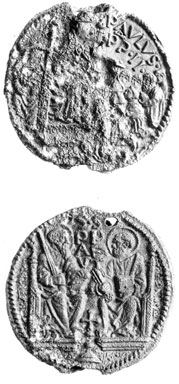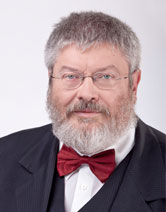(Information for the 78th PEN International Congress held in South Korea, 10-15 Sep. 2012.)
In his speech given at the 78th PEN International Congress held in South Korea in 2012, President of the Hungarian PEN Club Géza Szőcs announced the creation of a major international poetry prize in these words:
The Hungarian PEN Club is creating a major international prize, The Janus Pannonius Grand Prize for Poetry. We do this to counter the noticeable decline in the appreciation of poetry worldwide, a hugely dangerous trend. If poetic works are pushed to the periphery, then no matter how technically perfect our civilisation is, it will also become a soulless structure for us all. Given the numerous conflicts of interest between the countries on the planet, dialogue among its inhabitants becomes much more valuable. This dialogue appears both as an imperative and as a powerful tool to build confidence between cultures. We do not look upon poetry primarily as a tool, even though we consider it an important instrument in bringing the soul, spirit and our morals into maturity. Rather, we look upon it as a demonstration of the expressive power of human consciousness as it strives to become more noble.
Our prize seeks to honour and reward those poets who can be considered heirs to human spirituality and culture, the grand chain of values, accumulated over millennia. We wish to honour those contemporary artists who have done the most to advance the representation and enrichment of forms of consciousness in harmony with the reflection and interpretation of the world today. The prize has been named after Janus Pannonius, the first known and celebrated Hungarian poet. The prize awarded is 50,000 euros.
The century following 1400 was a period when great personalities seemed to disappear from literature. At this time literature meant poetry primarily, our oldest literary genre, as well as the most archaic human interpretation of the world. Poetry is the first human attempt towards finding a place in the world, toward articulating and processing emotions, and passing on the knowledge gathered about external and internal realities to others. Considering the high culture that was once associated with literacy, we can see that by this time Medieval Greek, Latin and Celtic poetry had come to an end. Only Oswald von Wolkenstein, who had by then retired to his castle, still cherishes the memory of troubadours and minstrels. By this time, the Nibelung had long been created, while the next great opus of the German epic, Ship of Fools by Sebastian Brant, would only be published at the end of the century. It’s twilight all around. Dante, Petrarca and Boccaccio have been dead for several decades. (It is true that in those bleak times Italy was wealthy and home to such educated poets as Antonio Beccadelli and Giovanni Pontano.
By then Angelo Poliziano not only wrote in Greek but also in Latin, and in the last quarter of the century he also wrote in Italian, although his work shares neither the strength of Dante, nor the inimitable elegance of Petrarca.) By now the early Arabic poetry, including the Caliphate of Cordoba, had already lost its personalities. The situation was no different in Persia, where the followers of Firdaus, Omar Khayyam, Nizam al-Din, Saad and Hafiz lagged far behind these great masters. It was the same in India. In Japan, where poetry had almost been a matter of state for one thousand years, only Ikkyu can be considered an exceptional figure during this century. The cult of his personality cannot be compared with that of Matsuo Basho, the greatest master of the haiku, born 250 years later. The haiku, however, was cut from the renga, which is only just becoming popular in the middle of this century. Even without great poets, poetry follows its autonomous motion. In China, the poets of the Tang Period did not even try to live up to the memory of the poets of the Ming Dynasty, such as Wang Wei, Li Bai, Du Fu and Po Chu-i. This is just a turn of phrase; I am sure they did their best. And what of America? Or Iberia? Those Mayan scribes who owed much to Popol Vuh had not even been born yet. Neither were Camões or Lope de Vega. In Britain, between Chaucer and Shakespeare at the end of the century, John Skelton made efforts to shape the English language into more noble forms. Now let us turn to the great exception – François Villon, the mid-century genius, whose cynicism and self-irony, combined with his personal and elemental lyrical touches, made him in public opinion the sole great poet of the 15th century.

